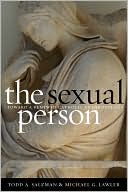 Looking for God within Memory (10.8.12-10.28.39)
Looking for God within Memory (10.8.12-10.28.39)
Augustine discovers the power of the mind to remember as the faculty of his nature which allows him “mount by stages toward” God. He will journey beyond the power of sensation inwardly to the “fields and vast mansions of memory” (10.8.12). He begins to reflect on what he finds when he turns inward. Memory is stored in innumerable images from the senses. There is an active dimension to this remembering on his part. He also notes that some images easily present themselves while others hide in secret unimaginable caverns (10.8.13).
Looking within he can also find memories which are not images of realities, but the realities themselves. He gives as examples his knowledge of literature and or skill in debate (10.9.16). How do we recognize these things as true? He answers,
Surely because they were already in my memory, but so remote, so hidden from sight in concealed hollows, that unless they had been dug out by someone who reminded me, I would perhaps never have been able to think about them (10.10.17).
Is Augustine agreeing with Plato that learning is simple remembering (Meno 81D) and that this learning is the result of the soul’s prior existence? Augustine will later explicitly repudiate this view in his Revisions I, 8.2. Rather than a full blown Platonic notion, following John Rist can we not see something like what Plotinus calls the ‘upper soul’ where certain truths are ‘naturally impressed’, but perhaps in a more limited fashion?[i] Rist notes the following examples from Augustine;
In On Human Responsibility there are impressed ideas of the eternal law (I.6.15), or numbers (2.8.20-21) and of wisdom (sapientia) (2.9.26). In Trinity we read of a just law impressed on the human heart (14.15.21) –this would include a version ‘which even inequity does not blot out’ of the Golden Rule (‘Do not do unto others what you would be unwilling to suffer’) (Confession 1.18.29, 2.4.9) –and of the good itself (8.3.4)[ii]
None of these examples require the belief in the pre-existence of the soul. While it is conceivable that initially Augustine held some Neo-Platonic beliefs about the pre-existence of the soul there is no conclusive proof that this is what he meant and he later clarified his position to the contrary.
Augustine moves on to discuss the active role of the subject in memory. He talks about knowing as cogitating or collecting ones thoughts (10.11.18). He notes that not only do we retain things in our memory we also store the way in which we learned them. (10.13.20). He notes how we can remember erroneous arguments and yet not be in error when we recall them, and how we recall emotions without feeling them in the present. He notes, “Mind and memory, however, are one and the same” giving us an imperfect analogy “the memory is like the mind’s stomach” (10.14.21). Since what we remember we retain in our memory, forgetfulness is a serious problem. Forgetfulness seems to involve a volitional component that orients us away from our deepest self and ultimately away from God. Augustine seeks to ascend to God beyond his memory (10.17.26). He turns to Scriptural images of seeking and finding (Luke 15:8) though he notes that they imply the person has not forgotten entirely.
How then should we seek God and find happiness? (10.20.29). How do we seek the happy life? Is it by way of remembering? Is it true that all of us want to be happy, yet happiness is not experienced through any kind of bodily sense? (10.21.30). Some think that happiness consists of enjoyment, but Augustine denies this. The happy life is found in rejoicing in God alone (10.22.32). He notes that we cannot assert without qualification that everyone wants to be happy (10.23.33) since some people are unwilling to find joy in God. In another sense if the happy life is joy in the truth (meaning God who is the Truth), then all want joy in the truth. He notes, “I have met plenty of people who would gladly deceive others, but no one who wants to be deceived” (10.23.33). But then why does preaching the truth engender hatred from some? “It must be because people love truth in such a way that those who love something else wish to regard what they love as truth . . . They love truth when it enlightens them, but hate it when it accuses them” (10.25.34).
Augustine asks where God is in his memory. “You have honored my memory by making it your dwelling-place, but I am wondering in what region of it you dwell?” (10.25.36). He soon realizes that “Place” has no meaning for God there is only the surrender of the will. He prays,
Late have I loved you.
Beauty so ancient and so new, late have I loved you!
Lo, you were within,
But I outside, seeking there for you,
and upon the shapely things you have made I rushed headlong,
I, misshapen.
You were with me, but I was not with you (10.27.38).
Set ablaze with the divine fire of Charity, Augustine desires to a line his will with God’s will. Augustine prays for continence recognizing that it is a gift from God. He notes that anyone who loves something along with God, and who does not love it for God’s sake, loves God less (10.29.39) “You command continence: give what you command, and then command whatever you will” (10.29.40).[iii]
Text © Scott McKellar 2011
All quotes in this series of blogs from Confessions are from, St. Augustine,Confessions, trans. Maria Boulding, O.S.B., The Works of Saint Augustine for the 21st Century, Ed John Rotelle, O.S.A., (New York, New City Press, 1997)
[i] Rist, p. 76.
[ii] Ibid., internal footnotes omitted.
[iii] Peter Burnell, “Concupiscence and Moral Freedom in Augustine and before Augustine Augustinian Studies 26.1 (1995): 49 – 63, Ibid., “Concupiscence,” in Augustine through the Ages: An Encyclopedia, ed. Allan D. Fitzgerald, O.S.A., Grand Rapids, Eerdmans, 1999, p. 224-227.
 During the past year I have posted on the Bible and the permanence of marriage in the Catholic view. I also posted about the nature of vows in an earlier post on a strange passage in Judges 11.
During the past year I have posted on the Bible and the permanence of marriage in the Catholic view. I also posted about the nature of vows in an earlier post on a strange passage in Judges 11. 
 I have been trying to wrap my brain around a recent article by Catholic scholars Michael G. Lawler and Todd A. Salzman, which appeared in America Magazine. Lawler and Salman are emeritus and current professors at Creighton University, Omaha, Neb. These two scholars coauthored a book entitled,
I have been trying to wrap my brain around a recent article by Catholic scholars Michael G. Lawler and Todd A. Salzman, which appeared in America Magazine. Lawler and Salman are emeritus and current professors at Creighton University, Omaha, Neb. These two scholars coauthored a book entitled, 



















